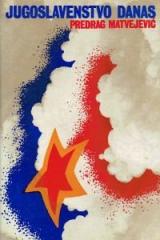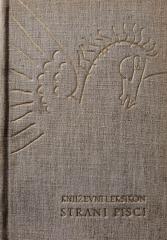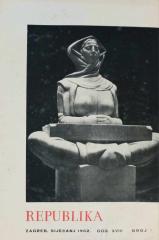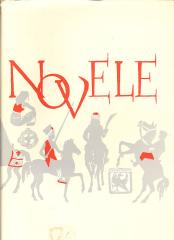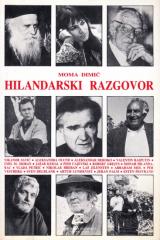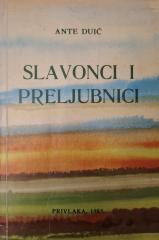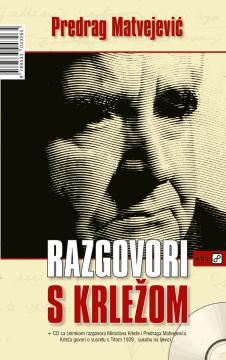
Razgovori s Krležom
Osmo, prošireno i dopunjeno izdanje knjige "Razgovori s Krležom" prati CD sa snimkom razgovora Krleže i Matvejevića o susretu s Titom 1939. u Šestinama, sibirskim grobovima, sukobu na ljevici te dramatizaciji "Banketa u Blitvi".
Iz Krležninih odgovora…
O pisanju Pisati? Što? Fraze? Glupe, bombastične fraze? Govoriti? Kome? Cijelo čovječanstvo već deset hiljada godina ne radi dugo nego govori. Od Sokrata do Vatikana same govornice i propovjedaonice… Štampati? Kome? Dokazivati?… Isto tako nema smisla. Što bi preostalo? Lagati? Gdje su mostovi preko kojih se može čovjek spasiti?
O frazi Fraza pretvara ljudsku riječ u ispraznost, osjećaje u kalupe, misli u glupe sheme. Ona nije ni laž, ni istina, ni iluzija. Deplasirana grimasa, kreveljenje u krivom trenutku i na krivom mjestu. Tajanstvena snaga kobne fraze o svetim stvarima domovine, boga, uvjerenja ili principa jedno je od najmračnijih historijskih strašila.
Crno i bijelo U igri crnoga i bijeloga, ja sam svijet uvijek gledao više s crne strane… Pisac mora shvatiti da ovoj civilizaiciji, koja na momente naliči na željezničku nesreću grandioznog stila, ambulantna kola i medicina potrebniji su nego išta drugo. Književnost nije smotala svoje barjake niti se predala na milost i nemilost bestijalnosti i gluposti, usprkos svemu.
O literarnoj budućnosti Što se „literarne budućnosti“ tiče, ukoliko je bude pisao čovjek, on će kao čovjek sanjati, a kako će on sanjati tko bi znao reći. No njemu će se u snu sigurno javljati njegova ljudska stvarnost, a ukoliko bude doista ljudska, ona će se još uvijek lomiti između dobra i zla, između laži i istine, između lijepog i ružnog. Bit će to otvorena pitanja, jer su bez odgovora.
CD sa snimkom razgovora Miroslava Krleže i Predraga Matvejevića Krleža govori o: – susretu s Titom 1939. u Šestinama – sibirskim grobovima – sukobu na ljevici – dramatizaciji Banketa u Blitvi….
Jedan primjerak je u ponudi
